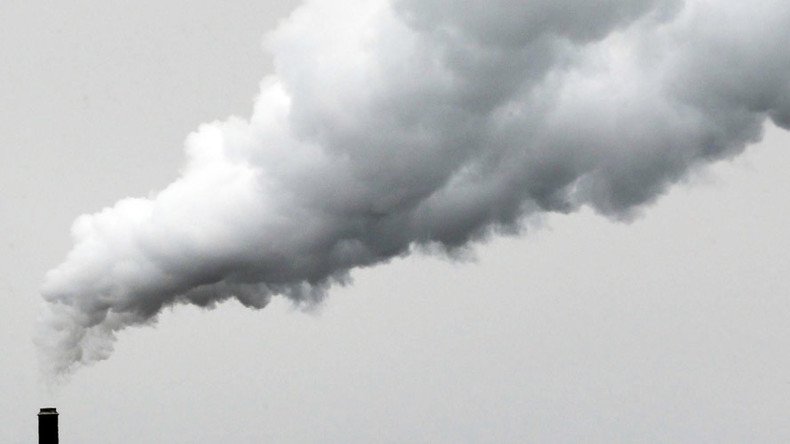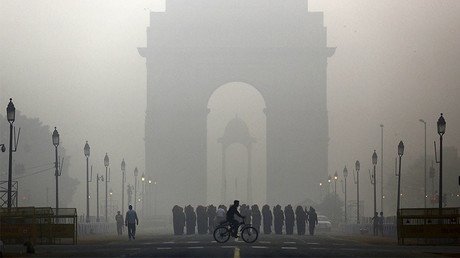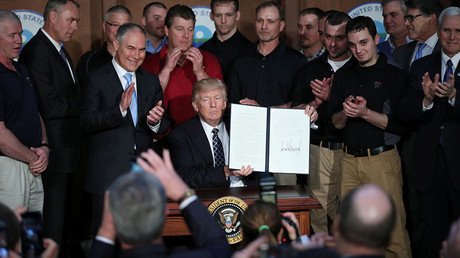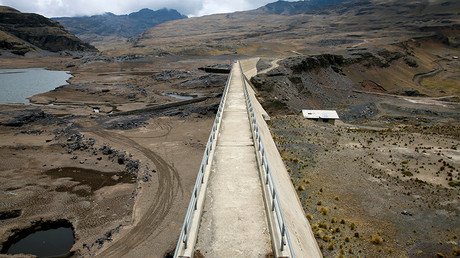California's cap-and-trade on carbon emissions upheld

California's carbon-emission reduction program, which allows companies to pay the state to be able to emit more pollution, does not amount to an illegal tax, a state appeals court has in a lawsuit filed by major business interests.
The state's cap-and-trade system, run by the State Air Resources Control Board, does not represent a compulsory tax that supersedes the California's Legislature's authority, the Third District Court of Appeals ruled Thursday in a 2-1 decision.
California's cap-and-trade system requires companies that want to pollute more than their share to voluntarily purchase credits through an auction or on a secondary market. The system, the proceeds of which go to the state, was approved in 2014 by the state Legislature with a majority vote, while taxes must be approved by a two-thirds vote.
This system does not levy an illegal tax, the appeals court ruled, because credits are purchased voluntarily and are "a thing of value."
"These twin aspects of the auction system, voluntary participation and purchase of a specific thing of value, preclude a finding that the auction system has the hallmarks of a tax," Judge Elena J. Duarte wrote for the majority.
Duarte added that, "contrary to plaintiffs' view, the purchase of allowances is a voluntary decision driven by business judgments as to whether it is more beneficial to the company to make the purchase than to reduce emissions."
Opponents of the system ‒ including plaintiffs Morning Star, a tomato processing company, and the California Chamber of Commerce ‒ have claimed that the state's cap-and-trade process amounts to a tax, which would require more support in the Legislature than was offered when the system was approved in 2014.
All three panelists agreed that the state Legislature had not exceeded its authority. Yet Judge Harry Hull dissented on the issue of whether the system equated to a tax.
"Given that the auction program is, for Morning Star and businesses that are similarly situated, compulsory if they are to remain in business in California and that the auction program creates, in actual effect, general revenue, I can only conclude that the program is a tax in 'something else' clothing and that the auction program, not having been passed by a 2/3 vote in the Legislature, violates Proposition 13," Hull wrote.
State officials hailed the decision, as Governor Jerry Brown (D-California) has vowed to fight for reduction of carbon emissions in the face of opposition from the Trump administration.
"The court’s decision affirms the basic purpose and structure of the program – to deliver carbon reductions in a cost-effective and flexible manner,"said Mary Nichols, chairwoman of the Air Resources Control Board. "The decision provides additional certainty for this keystone program, which supports all the other approaches California has underway to fight climate change."
An appeal to the state Supreme Court is expected but plaintiffs said such action is not yet decided.
"We are disappointed in the 2-1 decision," said Denise Davis, spokeswoman for the California Chamber of Commerce, according to the Sacramento Bee. "We are reviewing the decision and evaluating our options."
In December, following Donald Trump's victory in the presidential election, Brown promised to maintain California's course as a national leader in carbon reduction and climate-change solutions. In front of thousands of climate scientists gathered at a conference in San Francisco, Brown said: "We've got the scientists, we've got the universities, we've got the national labs and we have the political clout for the battle. And we will persevere, have no doubt about that."
Stocked with deniers of anthropogenic climate change, the Trump administration has vowed to roll back federal efforts to mitigate the effects of global warming.
















